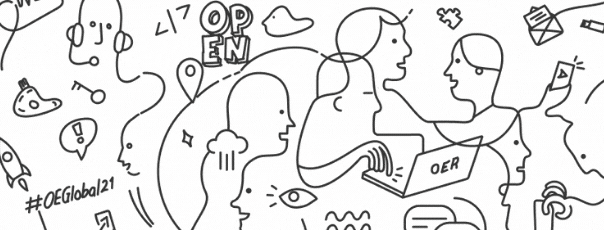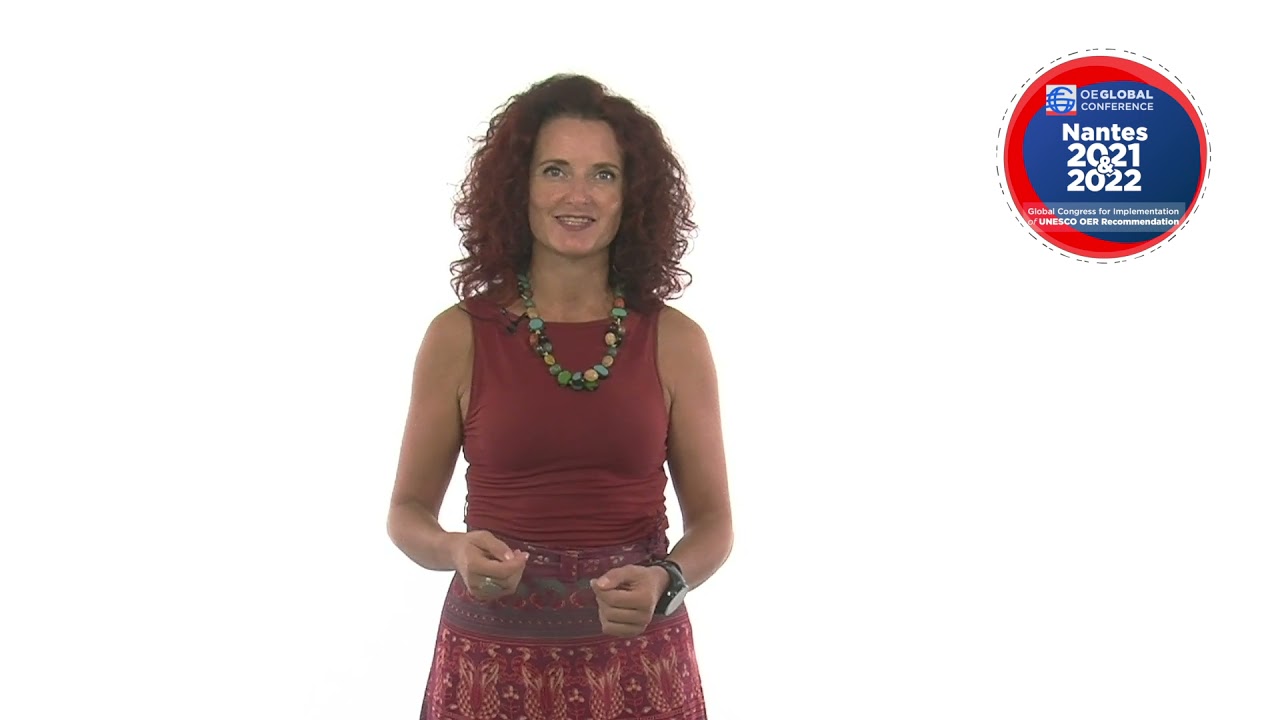
What does Building Capacity mean to you and your work?
We all work in and around Open Education. What happens as a result of the UNESCO OER Recommendation affects all of us.
This conference is dedicated to hearing from experts, but there are many voices, opinions, and experiences that have not yet been heard. Whether you are a presenter, an attendee or a curious observer, the conversation does not end with #OEGlobal21.
This page gives you the opportunity to share with the Open Education community, your thoughts on each Action Area.
How Building Capacity impacts my life
The UNESCO OER Recommendation is a dense document organized into five action areas each with its own set of recommendations. OEGlobal asked members of the community to create a short video to explain one of the five action areas and their importance to their work and open education.
In response, Paola Corti coordinated with female colleagues who are all working on an ERASMUS + project called The Fostering Women to STEM MOOCs (FOSTWOM) to record a video for Recommendation Action Area 1 - Building Capacity.
Paola Corti coordinated with female colleagues who are all working on an ERASMUS + project called The Fostering Women to STEM MOOCs (FOSTWOM) to record a video for Recommendation Action Area 1 - Building Capacity. In the video, in 6 languages, each Open Education practitioner explains the importance of open education to their work, and specifically how they expect the UNESCO OER Recommendation’s focus on Building Capacity to impact them.
Please enable subtitles (click on the ![]() icon on the video window) to get the full benefit of this message. The transcript of the video is available here:
icon on the video window) to get the full benefit of this message. The transcript of the video is available here:
Video participants include:
- Paola Corti, Project Manager at METID Politecnico di Milano, Italy
- Valeria Baudo, Project Manager at METID Politecnico di Milano, Italy
- Ana Moura Santos, Faculty member of the Department of Mathematics, Técnico de Lisboa, University of Lisbon, Portugal
- Charlotta Nilsson, Teacher, KTH Royal Institute of Technology Stockholm, Sweden
- Virginia Vega Carerro, Professor at the Faculty of Business Administration and Management at the Universitat Politècnica de València Spain
- Astrid Rosso, Igénieure pédagogique et Conservatoire national des arts et métiers, Paris, France
If you wish to add your voice to this project, find how here.
Knowledge is power
![]() Find all the Capacity Building sessions at #OEGlobal21 here
Find all the Capacity Building sessions at #OEGlobal21 here
![]() Find all background information on the UNESCO OER Recommendation here.
Find all background information on the UNESCO OER Recommendation here.
What do YOU think?
We would like you to share your thoughts and experiences on this Action Area. How do you do that? Click on the ![]() button below and:
button below and:
-
Tell us what you think: Express your thoughts on, hopes for, or expected impact of Capacity Building.
-
What exists already: Share a model that you feel will help to drive this Action Area, or provide links to a good example of a project that you feel already encapsulates the focus of this Action Area. Please provide the reasons why you feel it does.
-
One image tells a whole story … Share an image* from your work or experience that encapsulates this Action Area. (*CC-licensed or self-authored images only, please.)
-
Meme the theme : If you are feeling fun, adventurous, and creative, you could “meme the theme”, creating a meme of this action area. These platforms – Canva, Imgur, Imgflip, or Livememe – provide easy ways to create them.
Here are a few questions to get started …
- What capacity needs to be built so that OERs can be created, accessed, reused, adapted and redistributed?
- Why is this important?
- Who does this affect?
- What are the larger implications?
- What is currently being done?
- What needs to be done?
- How can it be implemented globally?
We are excited to hear your views and ideas!
